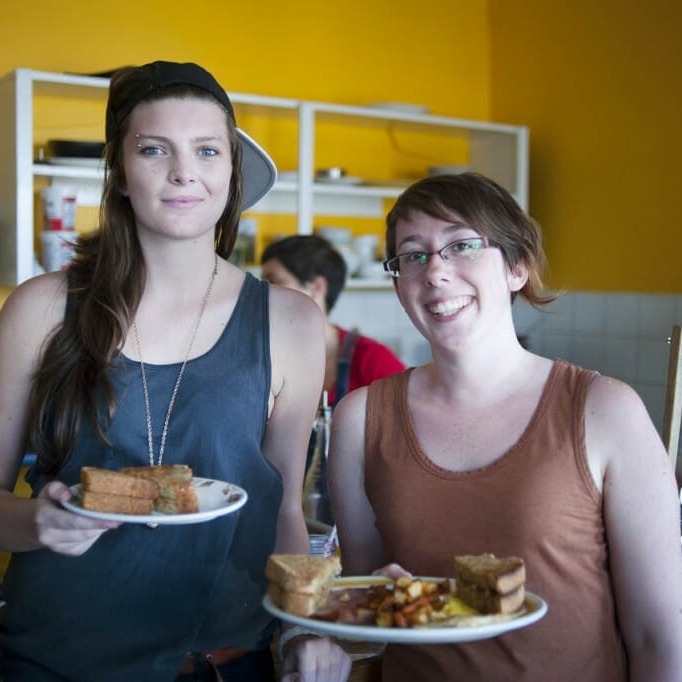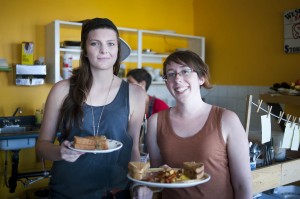
A newbie’s guide to eating locally
Once the novelty of residence food wears off, and you realize there is, in fact, very little nutritional value to those oh-so-delicious tacos you’ve been eating every night, you may find yourself wondering what other dietary options are available to a young Frosh.
Thankfully, you’re now living in Halifax—a city with a seemingly endless supply of fresh and local meat, dairy and produce.
The local food movement exists as a collaborative effort to build locally based, self-reliant food economies in which food is produced, processed, distributed, and consumed locally. Halifax restaurants such as the Wooden Monkey (1707 Grafton St.), Heartwood Café (6250 Quinpool Rd.), and the Good Food Emporium (2186 Windsor St.) , to name a few, place local production and consumption at the forefront of their food philosophies.
Dave Ewenson is the manager of Heartwood Café. He explains that supporting local food not only tastes better, but it supports our local farmers and contributes to a stronger producer-consumer relationship. “Buying locally allows us to easily produce complex flavours, without all the extra additives,” he says. “When we buy locally, even the little things, like a tomato, for example, can be exciting!” Heartwood offers food that is prepared with a deeper meaning of the word natural. The food is prepared as close to its natural state as possible, while also offering gluten-free and vegan alternatives.
Moving away from the downtown core, the Mindful Mango Café, located at the Village at Bayers Road, provides occupational therapy for patients recovering from mental illnesses, and caters to professionals working in the building with local, organic meals. Martin Hoben, manager at Mindful Mango, describes it as “a social enterprise that promotes health by enabling people to perform meaningful and purposeful activities, while at the same time providing fresh and delicious locally produced soups, salads, sandwiches, and snacks.”
In addition to restaurants, new food co-operatives and local food markets have begun to sprout up in the city. The Loaded Ladle, a student-run food co-operative at Dalhousie recently won a levy to provide ethically sourced, culturally diverse food as an alternative to the corporate franchises that currently inhabit the Student Union Building. Cooking in the kitchen at St. Andrew’s Church and transporting the goods on food-mobiles (bikes equipped with cabinets to store the food), the Loaded Ladle will be serving free food on Dalhousie campus every Tuesday, using local food supplied by the farmer’s market, along with other local producers.
Sonia Grant, one of the founders of the Loaded Ladle explains that it is important to eat locally for a variety of reasons. “The environmental impact of food production is currently very unstable. By eating locally, we can reduce our biological footprint and support our local farmers.” The Loaded Ladle also provides students a direct and easy way to get involved with the local food movement. “Not a lot of young people are involved in the local food movement. The Loaded Ladle provides them the opportunity to learn cooking skills and learn about ethically sourced foods. “
Despite its relatively small size, Halifax boasts a wide variety of restaurants, markets, and co-operatives that offer locally sourced food alternatives. As the movement continues to grow, more and more individuals are claiming the right to define the ways in which their food is produced and distributed, which remains vital to global food sovereignty.







